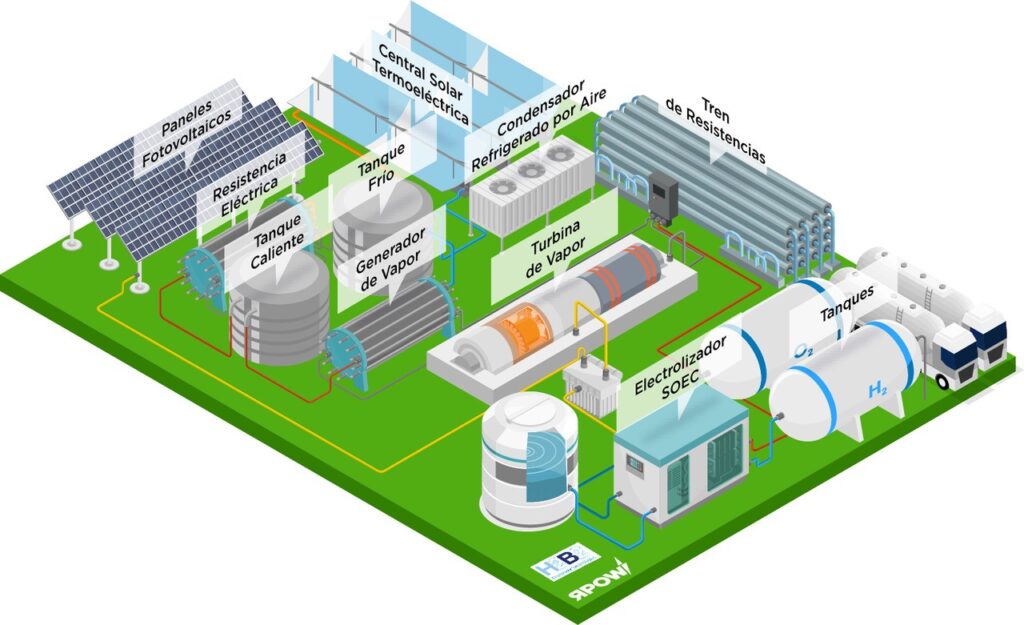
The tech firm RPow and H2B2 Electrolysis Technologies (H2B2), a global provider of renewable hydrogen solutions across the entire value chain, will build an innovative pilot plant for renewable hydrogen production in Andalusia. The project is titled ‘Design and development of an electricity and steam production system through thermal storage for green hydrogen generation via electrolysis (H2-24/7)’. For its development, the Institute for the Diversification and Saving of Energy (IDAE) issued the final resolution of the Program 4 H2 Value Chain in favor of the RPow-H2B2 consortium last Friday, August 2nd. This approval comes with a grant of 2.66 million euros, which will go towards the construction and commissioning of the new plant, to be located in Seville.
This project, focused on renewable hydrogen production through a high-temperature electrolysis process using renewable energy sources, represents a significant advancement in the renewable energy field by combining thermal storage with 24/7 hydrogen production. This process is made possible thanks to a new high-efficiency SOEL electrolyzer technology. Specifically, this hybrid procedure includes an innovative thermal energy storage system based on molten salts, which allows for the accumulation and management of both thermal and electrical energy needed for the electrolyzer’s operation.
Project goals and innovation
The H2-24/7 project aims to maximize the use of the electrolyzer (which separates oxygen and hydrogen from water), extending its operation for more hours per day and significantly increasing hydrogen production. According to RPow’s CEO, César Martín-Montalvo, “The thermal storage system will provide electricity through a turbine and heat for the electrolytic process, possibly the most innovative feature of this new plant.”
Simultaneously, a 100 kW electrolyzer with an electrical efficiency of 39 kWh/kg will be developed, which, according to Javier Brey, CTO of H2B2, “meets the European Union’s objectives for hydrogen production under the framework of the Strategic Research and Innovation Agenda (SRIA) established by the Clean Hydrogen Partnership.”
In this regard, César Martín-Montalvo highlighted that the thermal energy storage (TES) system is capable of simultaneously producing electricity and high-temperature steam (700-900 ºC) with a single system, which are the two elements necessary for the operation of this type of electrolyzer.
From a strategic perspective, H2-24/7 promotes the transition towards a prosperous and efficient hydrogen economy, maximizing hydrogen production powered by photovoltaic or wind energy. The new possibilities for using more efficient electrolyzers adapted to new types of industries will strengthen the position of RPow and H2B2 in the renewable hydrogen sector and allow them to offer new technologies and solutions in the markets where they operate, ahead of the competition.
For Javier Brey, “This project marks a significant milestone in the transition to clean energy, combining renewable hydrogen production and thermal storage for continuous and sustainable operation. We are excited to drive this advancement together with RPow; the union of our experience and technical knowledge will allow us to develop truly revolutionary technology in the renewable energy field.”
“There are very relevant investments associated with the development of renewable hydrogen in Spain, and with this innovation, we aim to advance the value chain with innovation generated in our country, which can create more skilled jobs associated with the growth of this new energy vector,” both leaders agreed.

